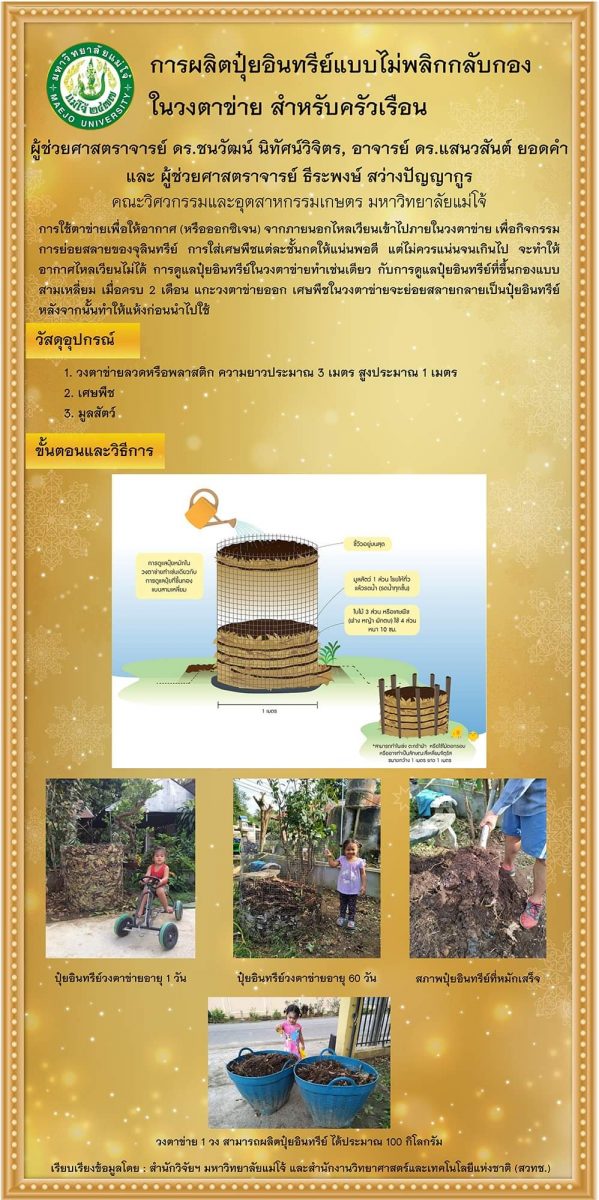Bio Waste Management & Composting
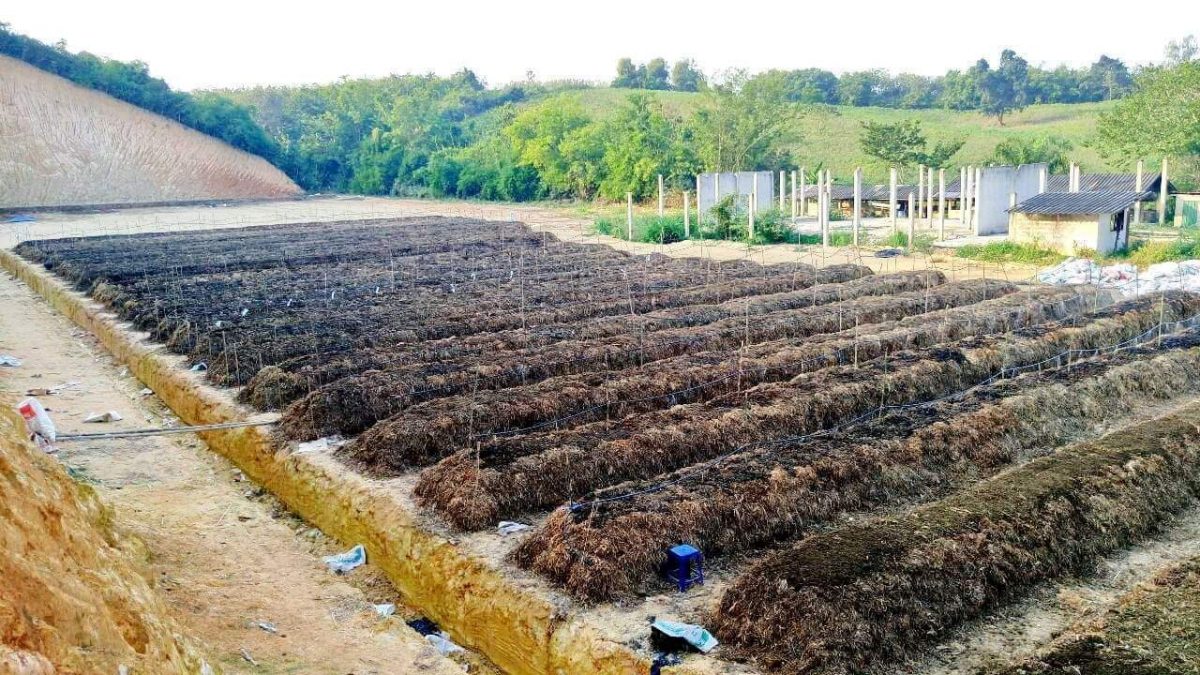
Around 50% of all tourist directed business (restaurants, resorts etc) and individual household waste material is organic … so removal of that material from the waste management system can have a major impact on local tessabaan resources.
EcoThailand, supported by a grant from Canadian Fund for Local Initiatives (CFLI) and donations, will continue to support Koh Phangan Island in a move to decrease bio waste reliance on environmentally poor methods, decreasing centralized collection and disposal, decreasing transportation, incineration and landfill, reducing smoke and PM2.5, and promoting local community education, infrastructure and sustainability.
Activities will include:
Providing free composting mesh and instruction for home and business site usage.
Providing Bio Char and charcoal making units to selected participating sites.
Setting up and equipping 3 community composting facilities (planned sites across the 3 island tessabaan) for those individuals and businesses unable to compost at their home or business sites.
Advising and liaising with tessabaan in setting up their own pilot schemes for bio waste collection and management.
Why Compost?
Composting is an inexpensive, natural process that transforms your kitchen and garden waste into a valuable and nutrient rich food for your garden. It’s easy to make and use, particularly so in the tropics.
You can do your bit to reduce the amount of waste sent to landfill or other more costly forms of treatment by composting your food, garden, restaurant waste etc at home or workplace, with the added advantage of producing a material which will considerably enhance the growth productivity of your grounds or gardens.
Composting is quite widely practiced on mainland Thailand, quite often at large scale or as community based operations, composting is much less common on the gulf islands.

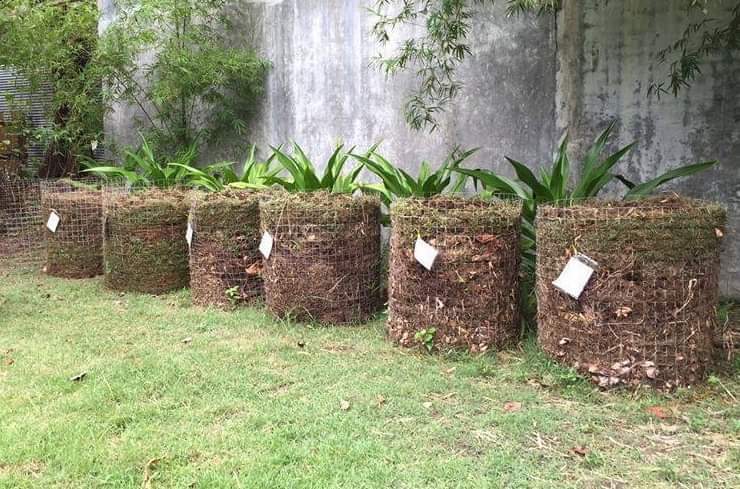
Fundementals of Composting
Composting is an aerobic method (meaning that it requires the presence of air) of decomposing organic solid wastes. It can therefore be used to recycle organic material. The process involves decomposition of organic material into a humus-like material, known as compost, which is a good fertilizer for plants. Composting requires the following three components: human management, aerobic conditions, and development of internal biological heat.
Composting organisms require four equally important ingredients to work effectively:
- Carbon — for energy; the microbial oxidation of carbon produces the heat, if included at suggested levels. High carbon materials tend to be brown and dry.
- Nitrogen — to grow and reproduce more organisms to oxidize the carbon. High nitrogen materials tend to be green (or colorful, such as fruits and vegetables) and wet.
- Oxygen — for oxidizing the carbon, the decomposition process.
- Water — in the right amounts to maintain activity without causing anaerobic conditions.
Certain ratios of these materials will provide microorganisms to work at a rate that will heat up the pile. Active management of the pile (e.g. turning) is needed to maintain sufficient supply of oxygen and the right moisture level. The most efficient composting occurs with an optimal carbon:nitrogen ratio of about 25:1
Nearly all plant and animal materials have both carbon and nitrogen, but amounts vary widely, with characteristics noted above (dry/wet, brown/green). Fresh grass clippings have an average ratio of about 15:1 and dry autumn leaves about 50:1 depending on species. Mixing equal parts by volume approximates the ideal C:N range. Few individual situations will provide the ideal mix of materials at any point. Observation of amounts, and consideration of different materials as a pile is built over time, can quickly achieve a workable technique for the individual situation. (Wiki)


Traditionally animal manure has been added to decomposing plant matter to increase the levels of Nitrogen and hence accelerate compost formation. On the gulf Islands solid animal waste is in short supply, however urine is both a high nitrogen substitute and, unlike solid waste, is relatively sterile and hence there are no issues concerning ‘bad’ bacterial contamination. Additionally, and particularly so in the hot tropics, sufficient aeration of the compost can be achieve by careful construction of the compost piles – a pyramidal profile being particularly good, and so there is no need to turn the compost piles as is common practice in more temperate climates. Because of the relative high starting temperatures in Thailand compost can be produced within a matter of 2-3 months, in comparison with 10-12 months in temperate climates.
The 2 key elements of easy composting in Thailand are – don’t overly compact the pile so that sufficient air can penetrate, (so avoiding having to ‘turn’ the compost at intervals) and supply adequate water from the top in order to keep the pile moist but not wet. This is particularly important in the Thai Gulf hot dry season.
During 2020 local Tessabaan on both Koh Samui and Koh Phangan have been giving out free ‘in ground’ plastic mesh based composting systems to eligible landowners, in part funded by a UNDP grant allocation.

.

During 2023 and into 2024 EcoThailand was supported by a grant from Canadian Fund for Local Initiatives (CFLI) to exapand our community based bio waste management capabilities on Koh Phangan island working with CFLI, individuals, our partners, businesses, tessabaan and others to improve bio waste management with consequent decreased burning, landfill, PM2.5 and general environmental improvement. The project distributed over 300 composting systems to individuals and businesses resulting in a saving of 6 tons of bio waste a month, decrease in carbon emissions of 3 tons a month and production of 5 tons a month of compost. In addition 3 community composting sites were enabled, on of which has transitioned into a social enterprise type business, Kohmpost which EcoThailand continues to support.
Closely aligned to composting bio waste as a means of generating added value is the making of bio char and charcoal, essentially carbonizing woody organic materials under controlled low oxygen levels, driving off the volatiles and so producing bio char, charcoal and also condensates, all of which can be used in a wide variety of circumstances, including soil improvement, pest control of plants, cosmetic and medicinal products. Here Ing and Waan are making activated coconut shell charcoal for inclusion into home made soaps.
‘Biochar’ is a catch-all term describing any organic material that has been carbonised under high temperatures (300-1000°C), in the presence of little, or no oxygen. This process (called ‘pyrolysis’) releases bio-oils plus gases and leaves a solid residue of at least 80% elemental carbon which is termed biochar, a form of charcoal.
EcoThailand Foundation, whenever sponsorship is available, give free composting bins and advice to local residents as part of our ‘Composting for All’ initiative with the aim increasing local bio waste management, decreasing the need for transport and municipal intervention, so minimizing greenhouse gas release, landfill, and burning (lowering smoke and PM2.5 pollution) . Some of our happy recipients are:

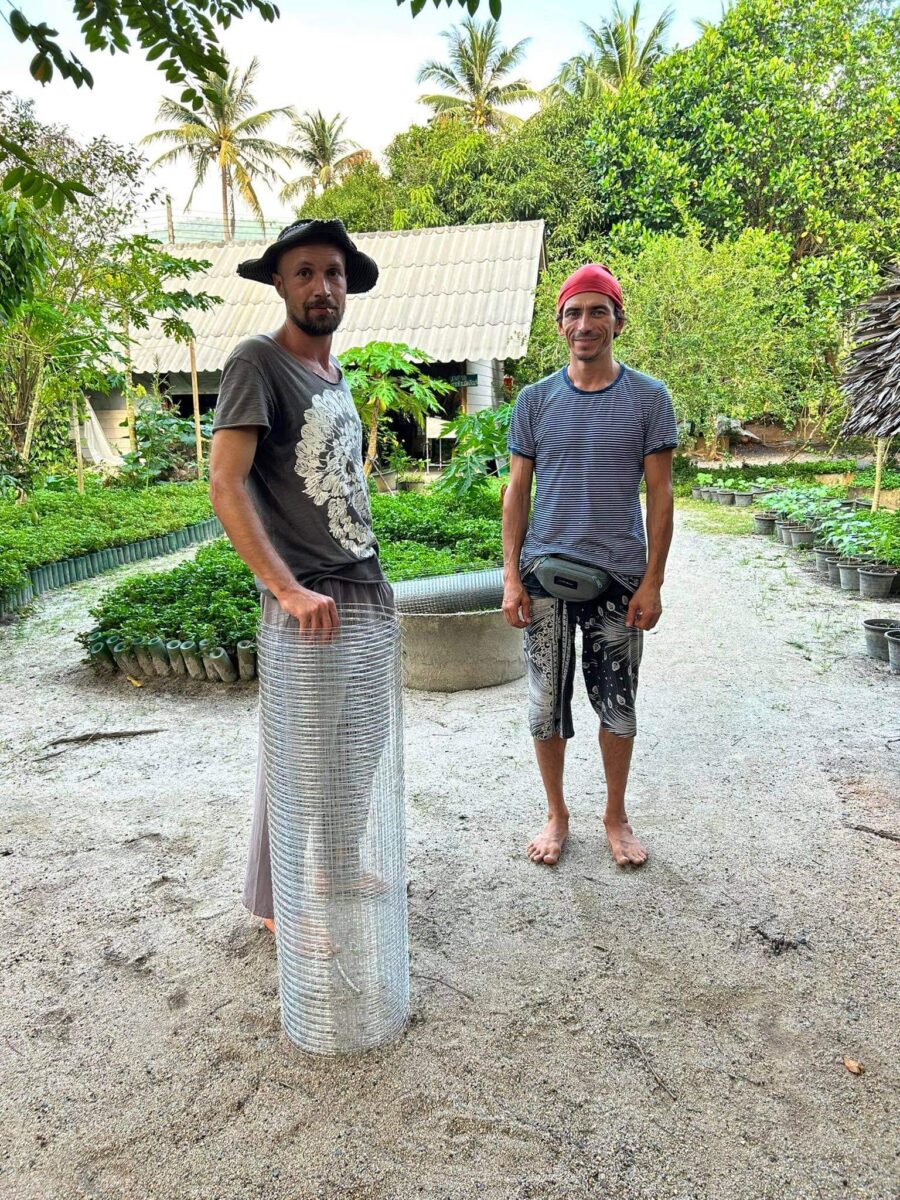
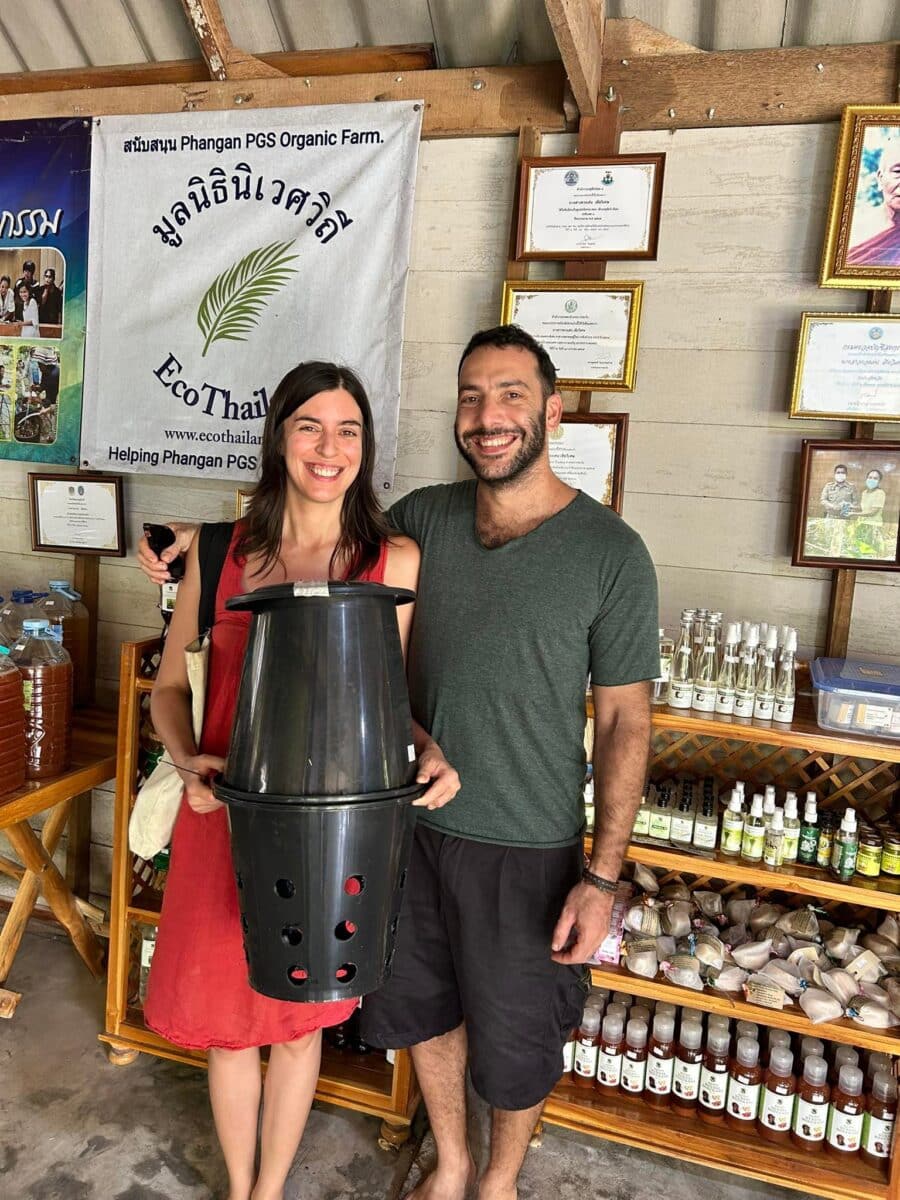


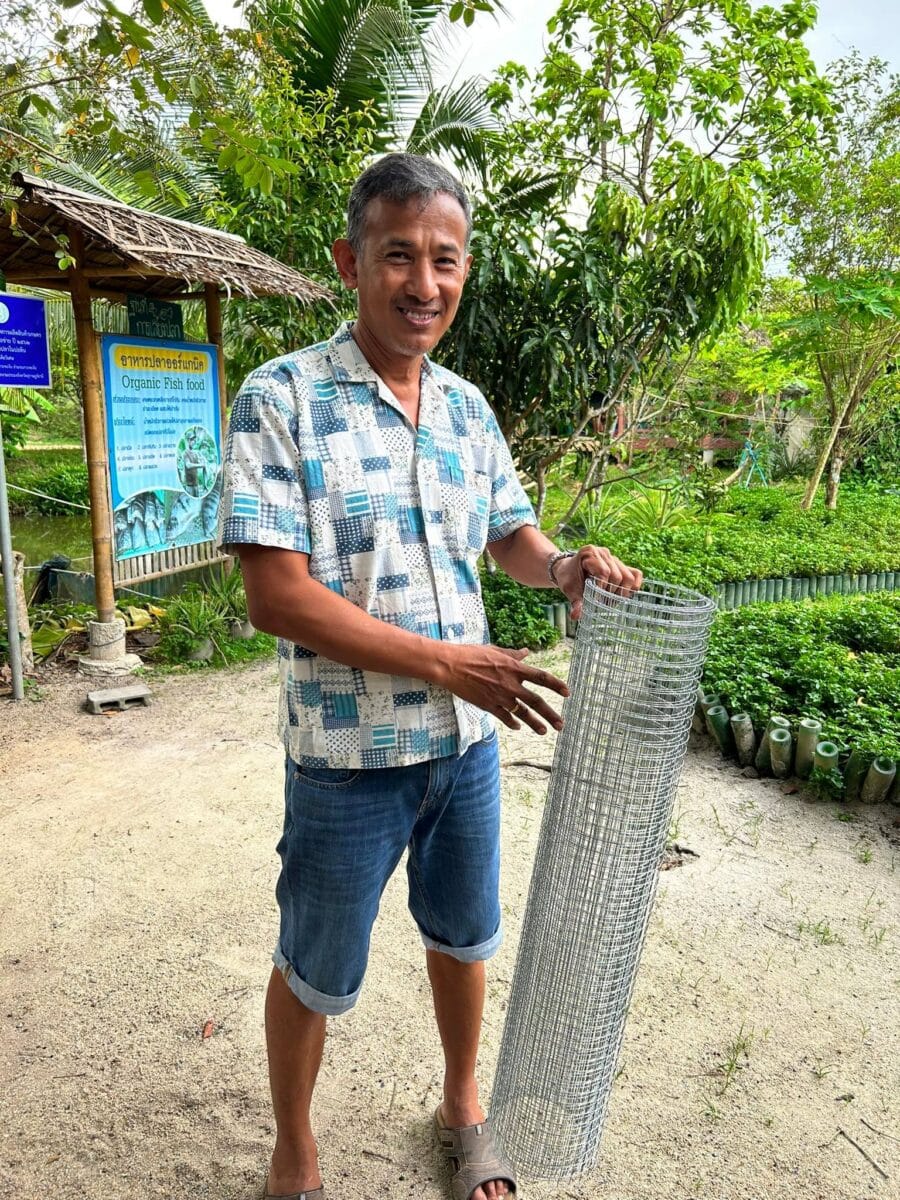
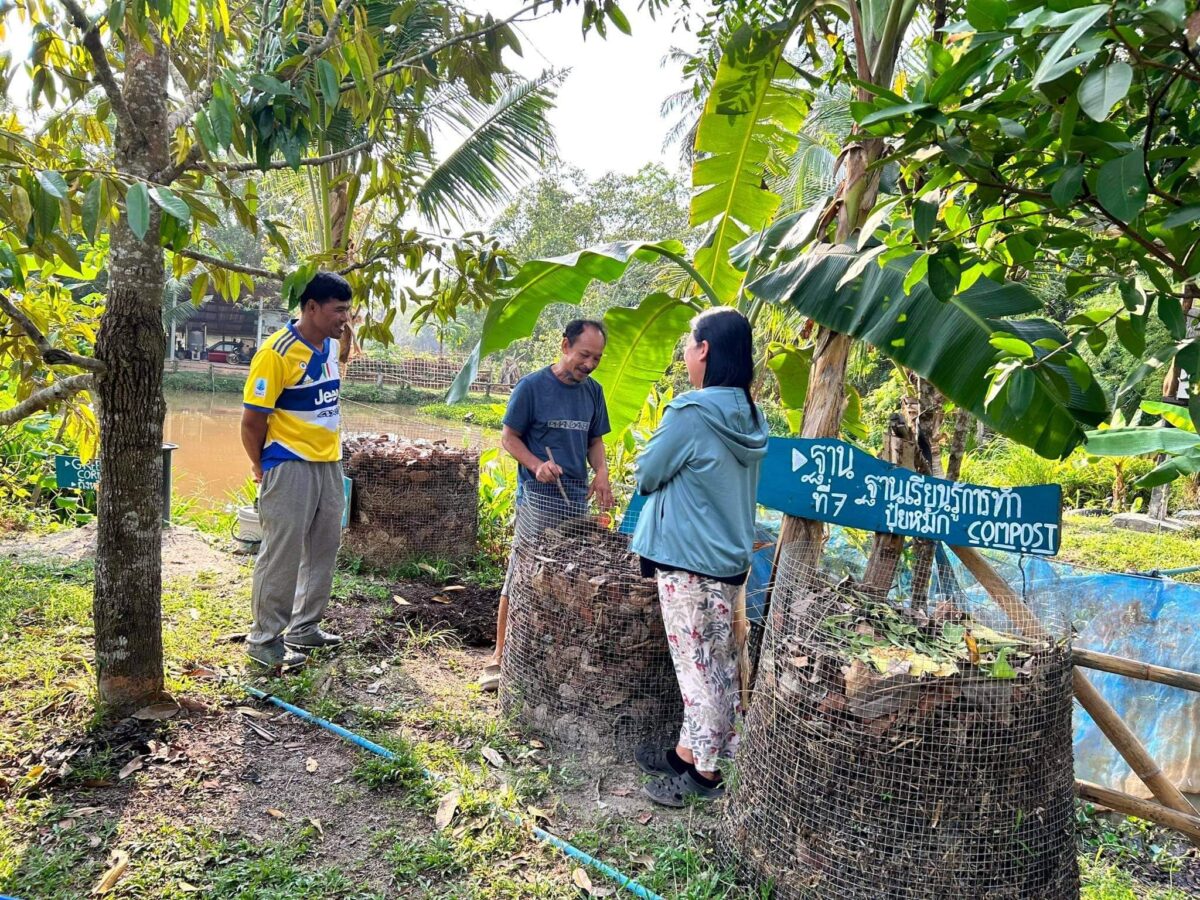
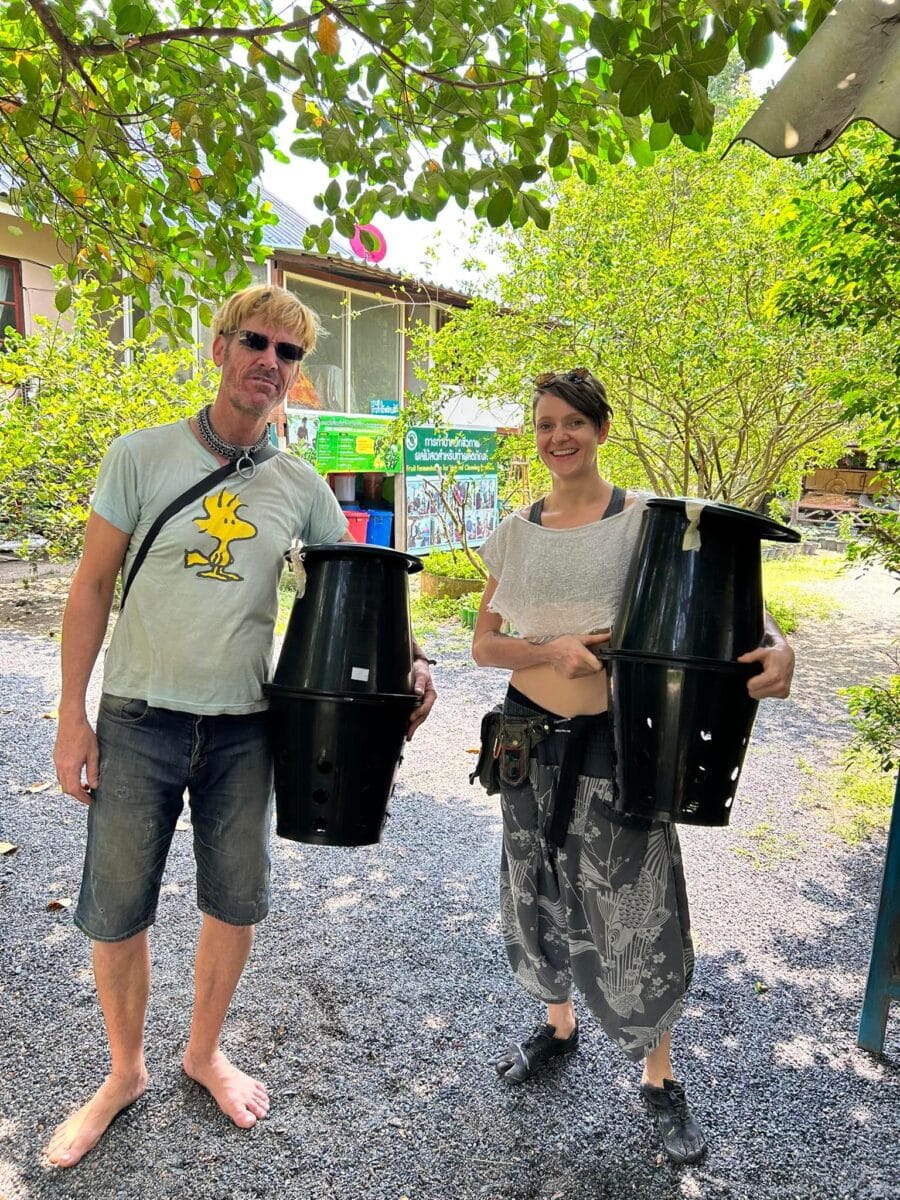
Follow the Graphics below ‘How to Do’ one design of a compost pile … but … experiment, there is little to go wrong!:
(Click to enlarge)
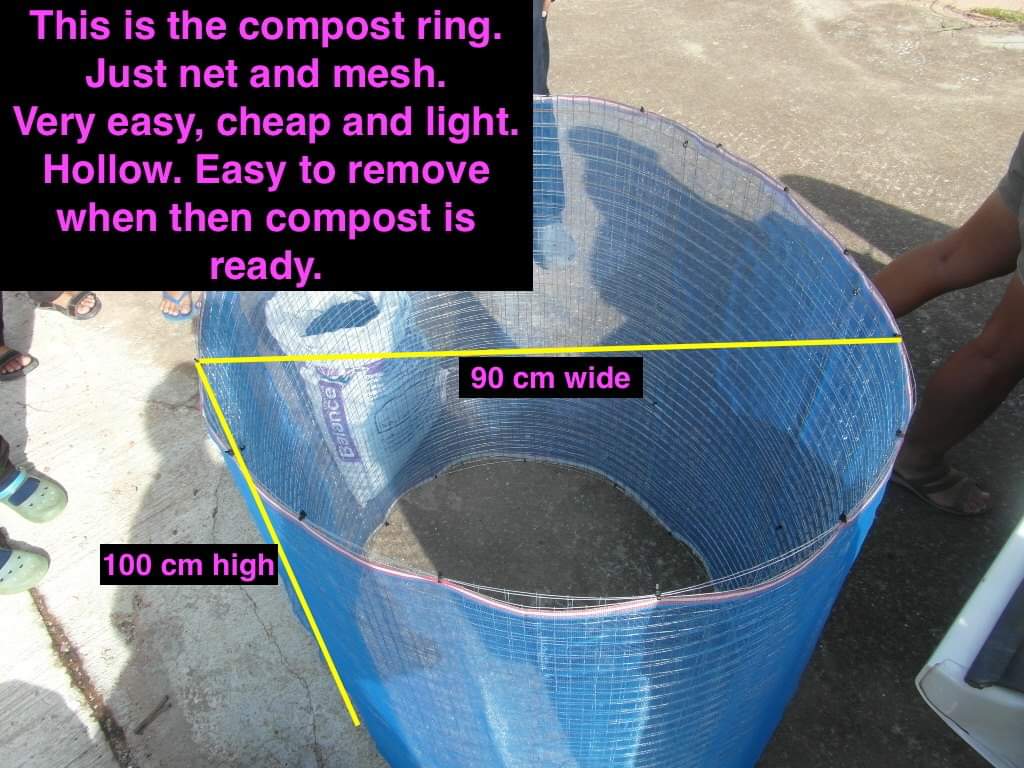


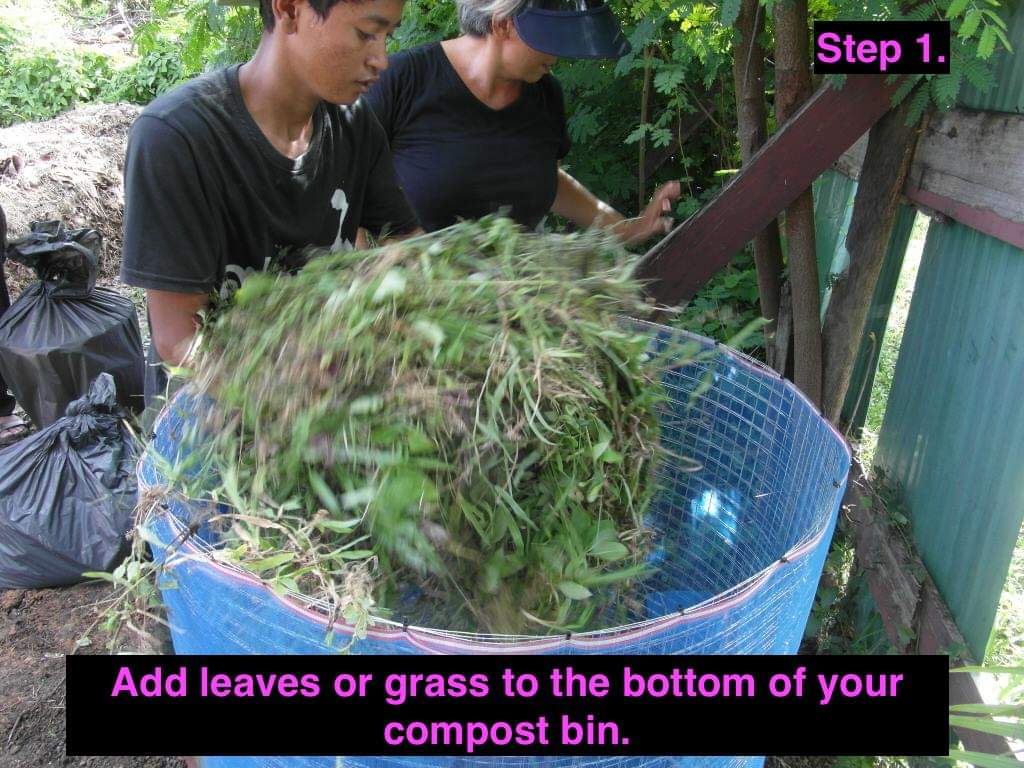
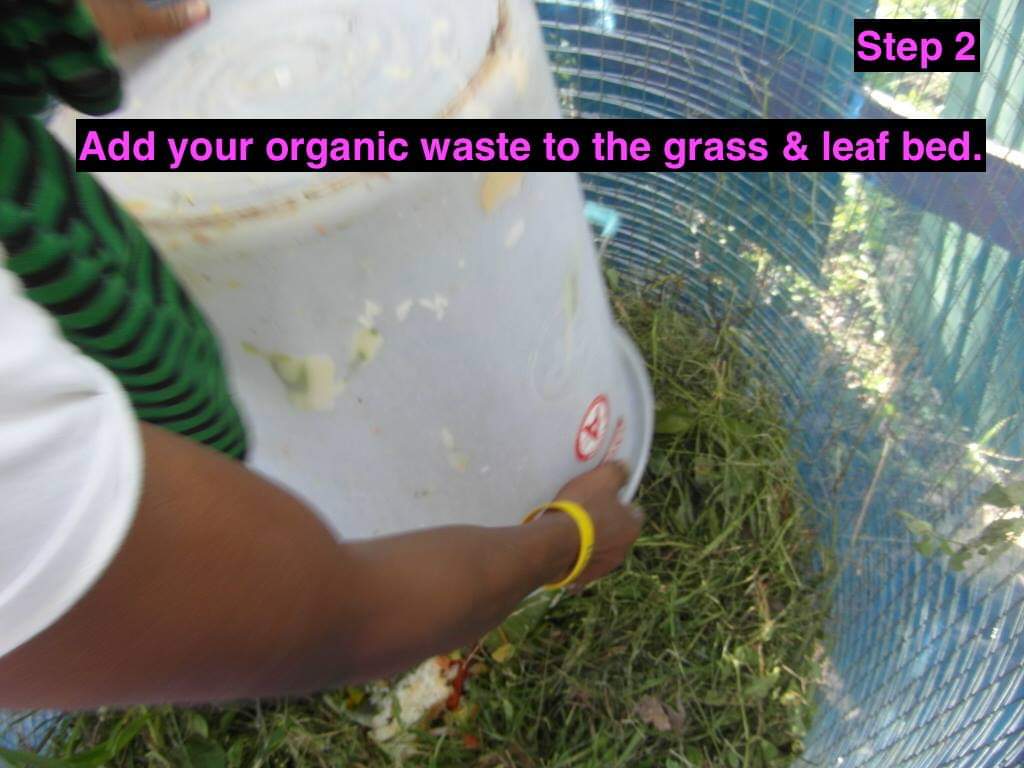

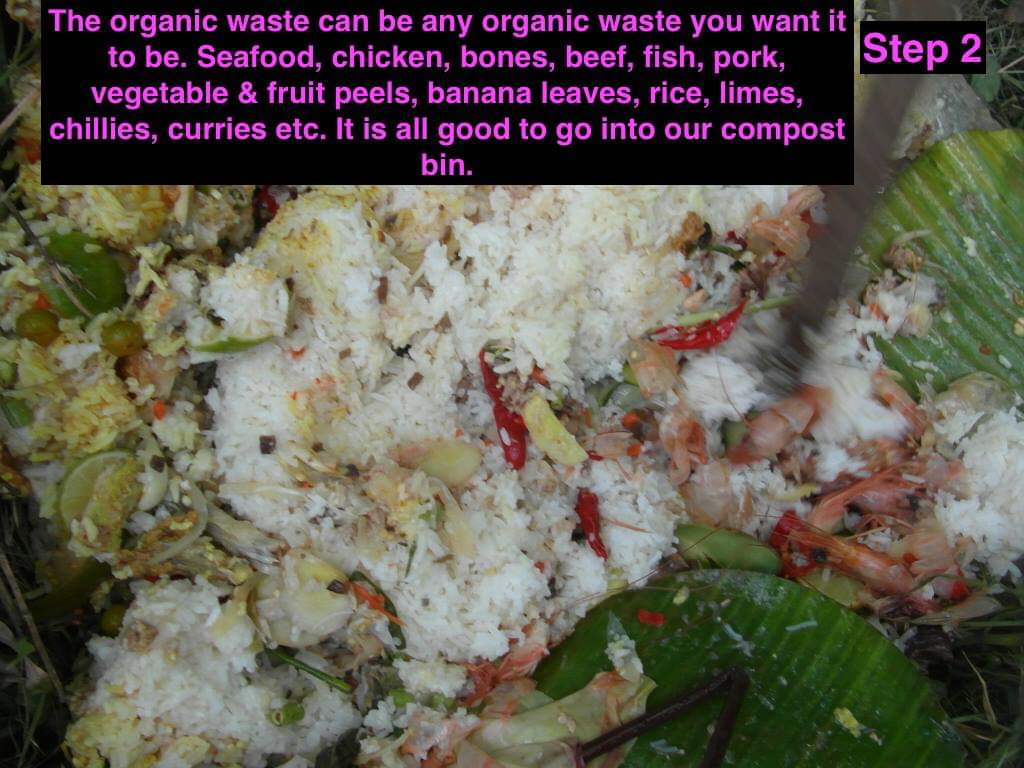
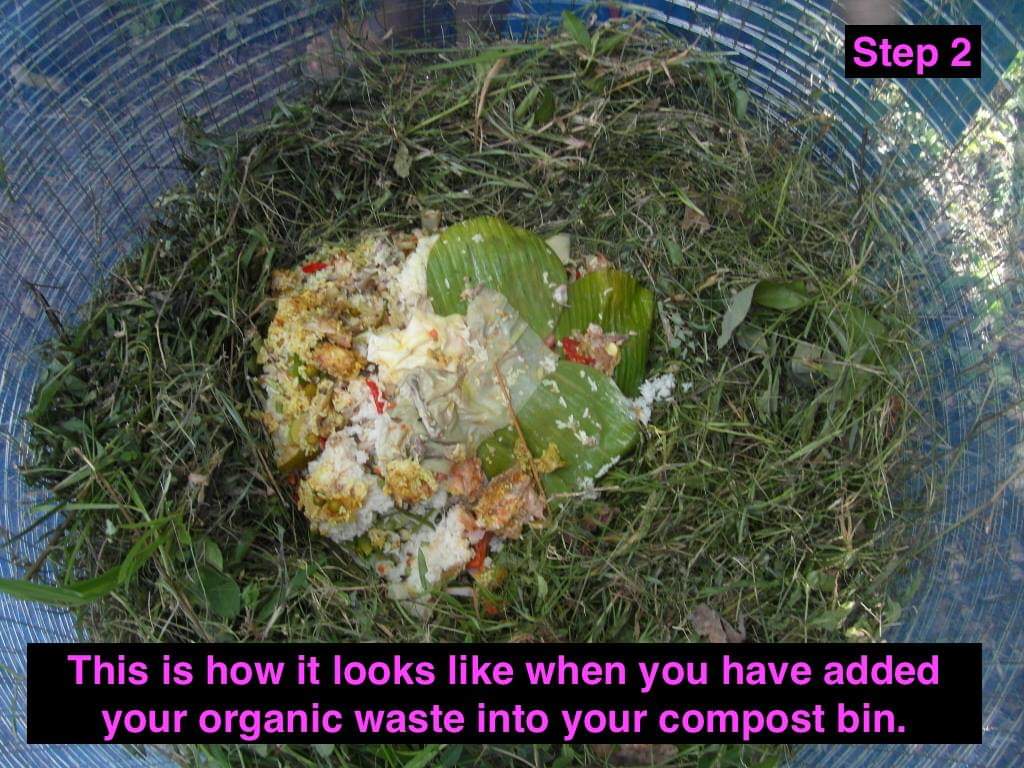
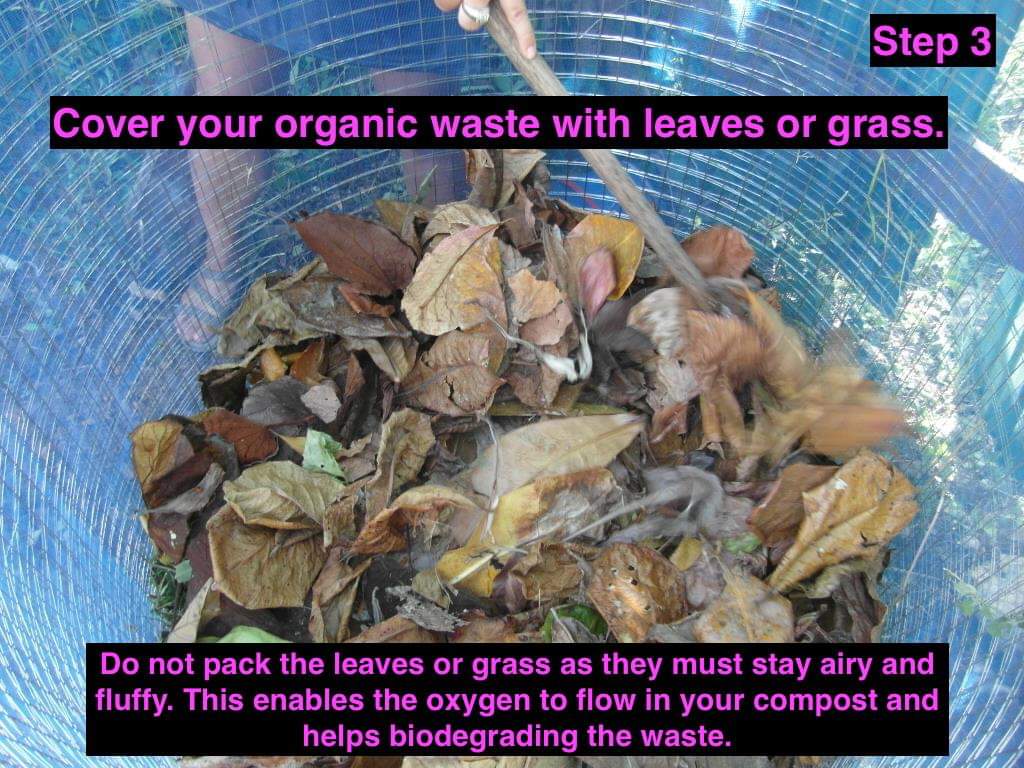

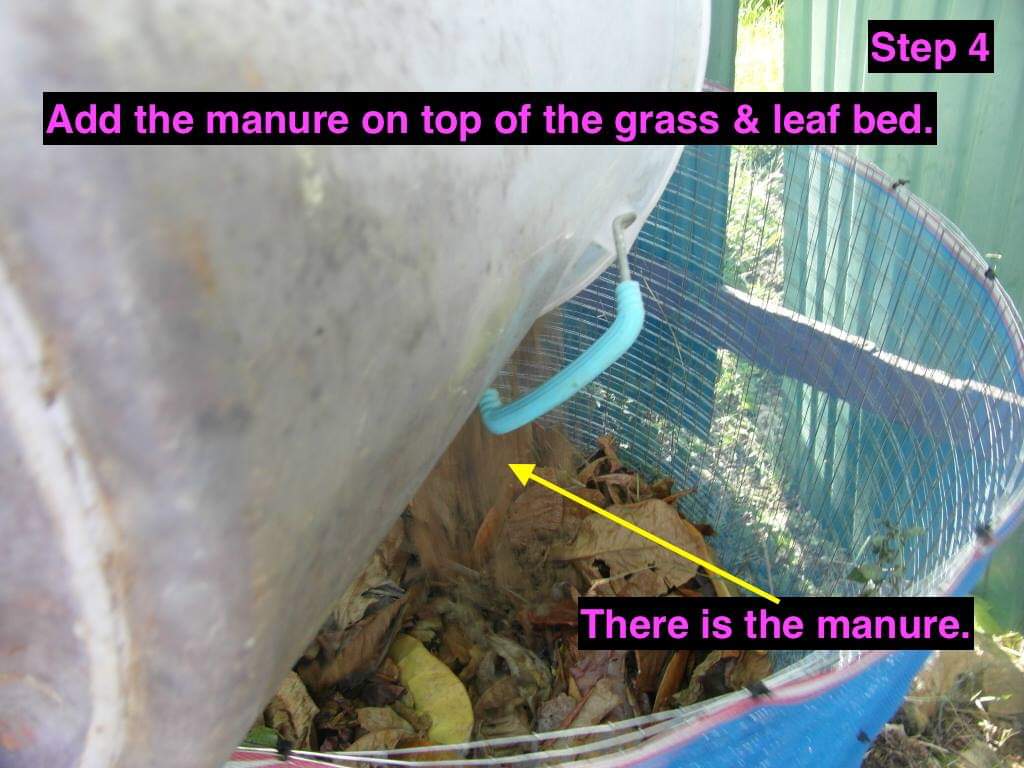
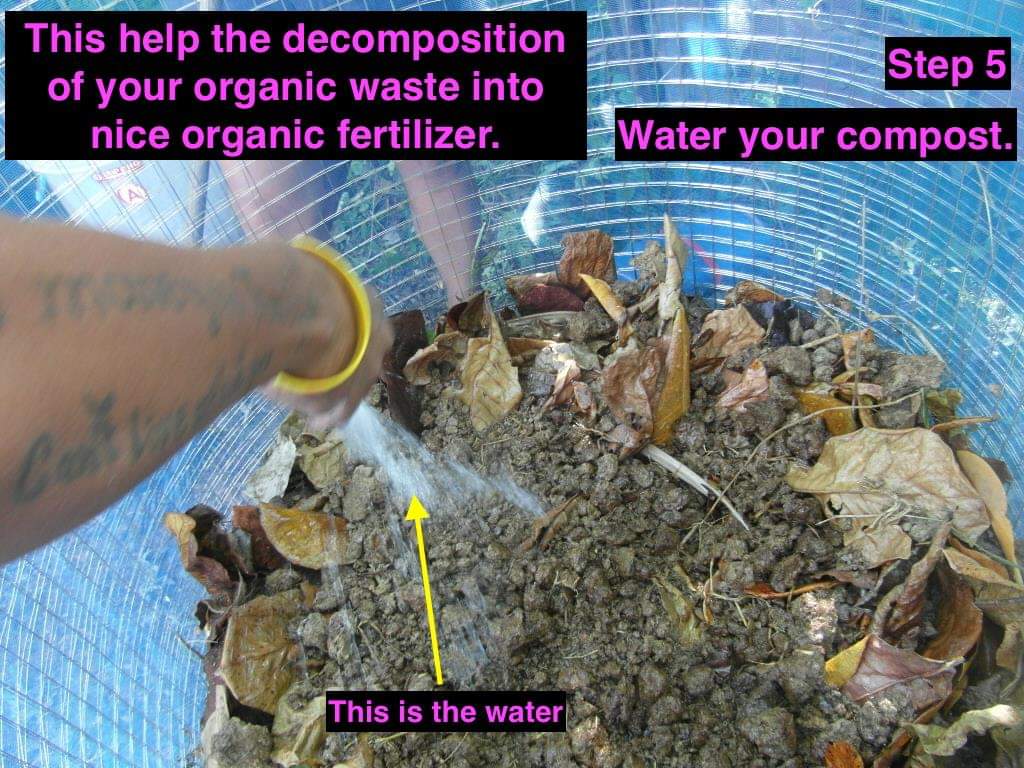
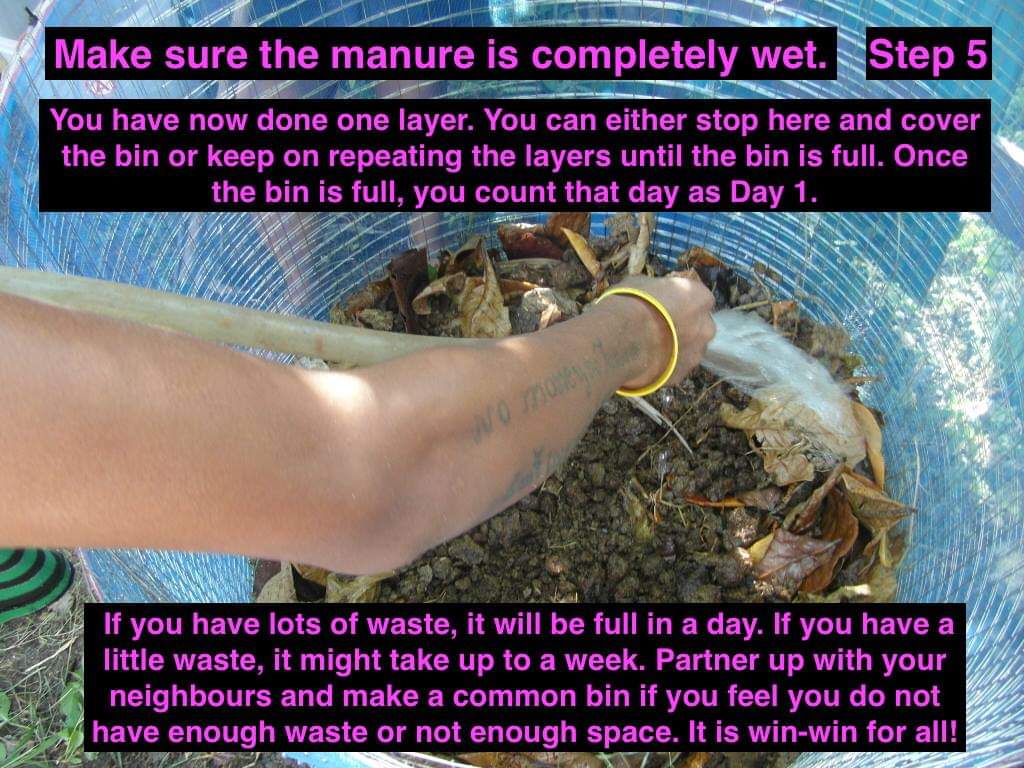
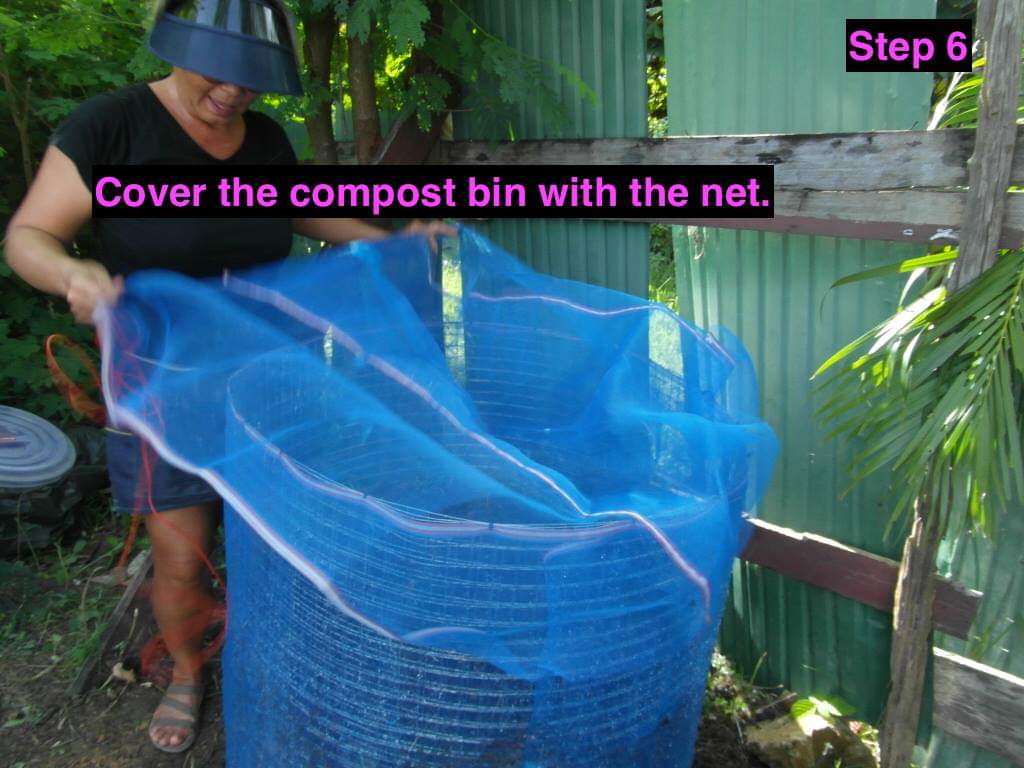
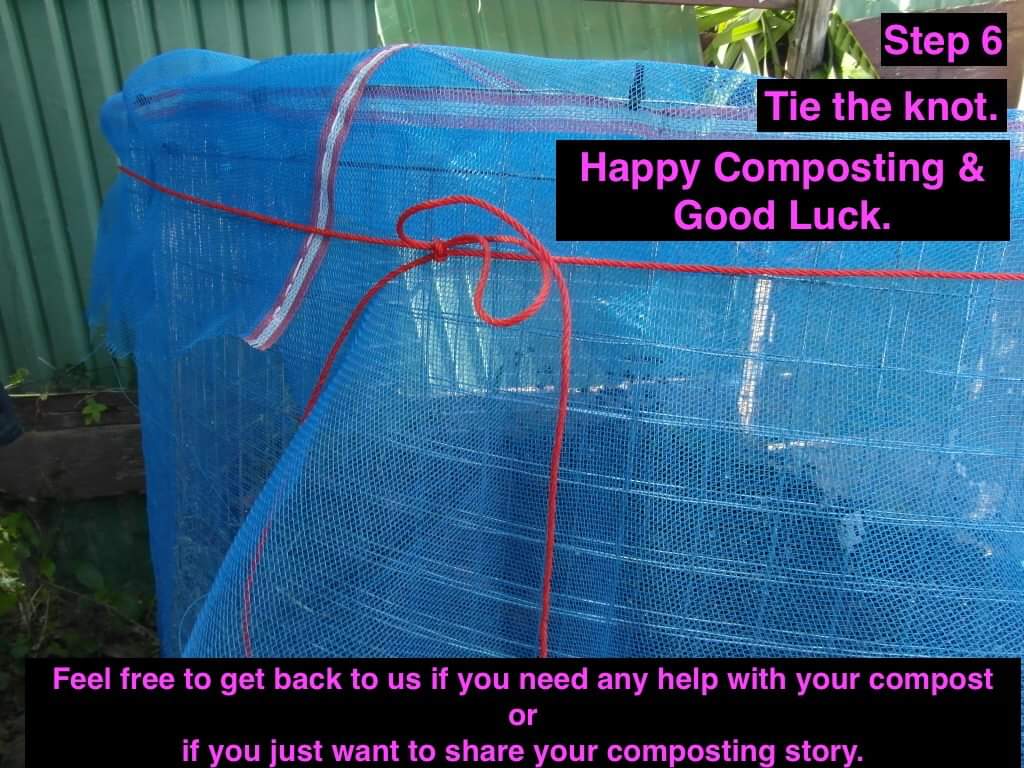
Thai Style, Thai Language Composting Video Links
